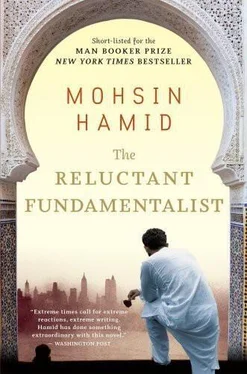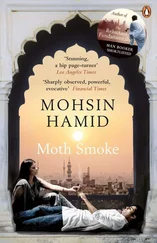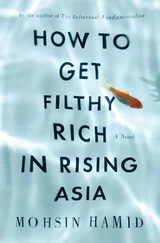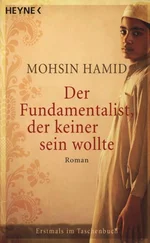Such journeys have convinced me that it is not always possible to restore one’s boundaries after they have been blurred and made permeable by a relationship: try as we might, we cannot reconstitute ourselves as the autonomous beings we previously imagined ourselves to be. Something of us is now outside, and something of the outside is now within us. Perhaps you have had no comparable experience, for you are gazing at me as though at a raving madman. I do not mean to say that we are all one, and indeed — as will soon become evident to you — I am not opposed to the building of walls to shield oneself from harm; I merely wished to explain certain aspects of my behavior upon my return.
Despite my not insubstantial financial constraints, I managed every year to pay my class dues in order to receive the Princeton Alumni Weekly, which I read unfailingly from cover to cover, with particular attention to the class notes and obituaries sections at the end. From time to time I would chance upon the name of an acquaintance and I would squint intently through such pinholes into the life I had left behind, wondering how that world — the world of people like those with whom I had traveled to Greece — was evolving. Erica, however, never appeared in those pages, and while it was possible that mention of her had slipped by unnoticed in one of the issues that the vagaries of the international post had prevented from arriving, I drew hope and sorrow in equal measure from each of her episodic absences.
I do not know what I expected to find — a notice that her novel had been published and she had thrilled classmates by appearing at the book launch? a final announcement that her body had been identified? a blurry face in a reunion photograph that could plausibly have been hers? — but I do know that time did not diminish the eagerness with which I looked. For some months I continued to email her, until her account became inactive; thereafter I limited myself to a single letter each year, sent on the anniversary of her disappearance, but it was always returned to me unopened.
My brother married last April, shortly before I turned twenty-five. Subsequently my mother began to suggest — with increasing urgency — that I consider doing the same; she believed I was in the grip of an unhealthy melancholy and that a family of my own was the surest way for me to rediscover satisfaction in my life. She also thought I spent too much time at work or alone in my room, and not enough with my friends. Once she even asked me with visible nervousness if I was not, by any chance, gay. I had not told her about Erica, and I found it became progressively more difficult to contemplate doing so; our relationship could now thrive only in my head, and to discuss it with a mother intent — admittedly in my own best interest — on challenging it with reality might do it irreparable harm. Not, of course, that I actually believe I am having a relationship, in the normal sense of that term, with Erica at this moment, or that she will one day appear, smiling and bent against the weight of her backpack, to surprise me on my doorstep. But I am still young and see no need to marry another, and for now I am content to wait.
You, sir, on the other hand, seem ready to bolt. What has so startled you? Was it that sound in the distance? I assure you, it was not the report of a pistol — although I can understand why you might think so — but rather the misfiring exhaust of a passing rickshaw. Their two-stroke motors, often not in the best of maintenance, are prone to sputtering in that fashion. It is most disturbing, I agree. What? Is somebody following us? I cannot see anyone — no, wait, now that you mention it there are a few figures there, in the gloom. Well, we cannot expect to have Mall Road to ourselves, even at this late hour. In all likelihood they are merely workers making their way home.
Yes, you are right: they have paused. What do you mean, sir, did I give them a signal? Of course not! I have as little insight into their motivations and identities as you do. One can only speculate that they have dropped something, or arc engaged in conversation among themselves. Or perhaps they are wondering why we have paused, and whether we mean them ill! Regardless, there is no need for us to concern ourselves overmuch; let us continue with our midnight stroll. Lahore is a city of eight million people, after all; it is hardly a rural forest inhabited by phantoms.
I am glad you are willing to proceed. But what are you searching for? Ah, your unusual mobile phone. If you are sending a text to your colleagues, you may wish to inform them that we are not far from your hotel — another fifteen minutes at the most, I should think, which suggests to me that I ought to make haste if I am to bring matters to a suitable conclusion. Earlier, sir, if you recall, you asked me what I did to stop America. Let me now, as we come to the end of our time together, attempt an answer, even though it may well leave you disappointed.
The threat of war with India reached its highest point the summer after I returned from New York. Multinational corporations on both sides of the border ordered senior employees to leave, and travel advisories were issued throughout the nations of the First World, counseling their citizens to defer nonessential trips to our region. It seemed the weather was the only factor delaying the official commencement of hostilities: first because the heat was too great for an Indian offensive in the desert, then because the monsoon’s rains made driving treacherous for Indian tanks in the Punjab. September was deemed the best month for battle, since the mountain passes of Kashmir might be closed by snow as early as October. So we waited as our September ticked by — little noticed by the media in your country, which was focused at that time on the first anniversary of the attacks on New York and Washington — and then the days started to shorten, the negotiations began to make progress, and the likelihood of a catastrophe that could have claimed tens of millions of lives receded. Of course, humanity’s respite was brief: six months later the invasion of Iraq would be under way.
A common strand appeared to unite these conflicts, and that was the advancement of a small coterie’s concept of American interests in the guise of the fight against terrorism, which was defined to refer only to the organized and politically motivated killing of civilians by killers not wearing the uniforms of soldiers. I recognized that if this was to be the single most important priority of our species, then the lives of those of us who lived in lands in which such killers also lived had no meaning except as collateral damage. This, I reasoned, was why America felt justified in bringing so many deaths to Afghanistan and Iraq, and why America felt justified in risking so many more deaths by tacitly using India to pressure Pakistan.
I had in the meanwhile gotten a job as a university lecturer, and I made it my mission on campus to advocate a disengagement from your country by mine. I was popular among my students — perhaps because I was young, or perhaps because they could see the practical value of my ex-janissary’s skills, which I imparted to them in my courses on finance — and it was not difficult to persuade them of the merits of participating in demonstrations for greater independence in Pakistan’s domestic and international affairs, demonstrations that the foreign press would later, when our gatherings grew to newsworthy size, come to label anti-American.
The first of our protests to receive much attention took place not far from where we are now. Your country’s ambassador was in town, and we surrounded the building in which he was speaking, chanting and holding placards. There were thousands of us, of all possible affiliations — communists, capitalists, feminists, religious literalists — began to get out of hand. Effigies were burned and stones were thrown, and then we were charged at by large numbers of uniformed and plain-clothed police. Scuffles broke out, I intervened in one, and as a result I spent the night in prison, nursing a bloody lip and bruised knuckles.
Читать дальше












